7 Myths About Pool Maintenance Costs
Owning a swimming pool is often seen as the ultimate luxury. However, it’s also surrounded by misconceptions, especially when it comes to maintenance costs. Many potential pool owners hesitate, fearing high expenses and complicated upkeep. This blog aims to debunk seven common myths about pool maintenance costs, providing homeowners and pool enthusiasts with the clarity they need.
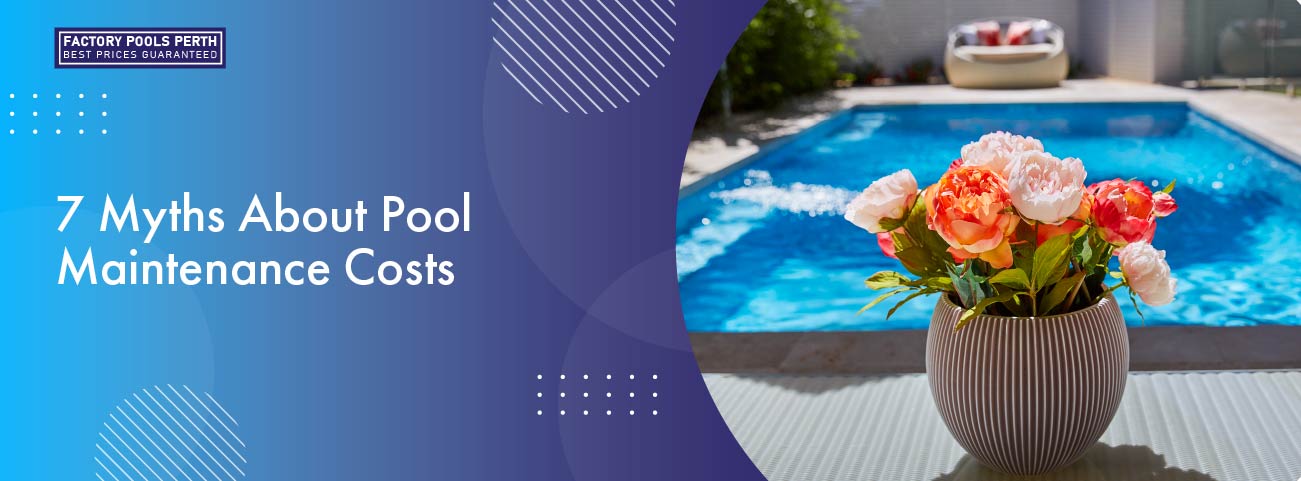
Understanding Real Pool Maintenance Costs
Swimming pools offer endless fun and relaxation, but misinformation can make the idea of maintaining one seem daunting. Understanding the true costs involved is crucial for making informed decisions. Are pools really that expensive to maintain? Do all pools have the same upkeep costs? In this blog, we’ll answer these questions and more, helping you separate fact from fiction.
Myth 1: Pools are Incredibly Expensive to Maintain
It’s a common belief that owning a pool will drain your bank account. However, this isn’t necessarily true. The cost of maintaining a pool can vary significantly based on factors like pool size, type, location, and the frequency of use.
Firstly, regular maintenance tasks such as cleaning, chemical balancing, and equipment checks don’t require a fortune. Many homeowners find that with a few hours per week, they can handle most of these tasks themselves. Additionally, the cost of necessary chemicals and tools is relatively low.
Moreover, technological advancements have made pool maintenance more efficient. Automated vacuums and smart pool systems can reduce the manual effort required, potentially saving you both time and money. So, while there are costs involved, they are often not as overwhelming as people assume.
Myth 2: All Pools Have Similar Upkeep Costs
Not all pools are created equal, and neither are their maintenance costs. Different types of pools—such as in-ground, above-ground, and saltwater pools—come with varying maintenance requirements and associated costs.
In-ground pools, for example, typically require more maintenance due to their larger size and the materials used. On the other hand, above-ground pools are generally easier and cheaper to maintain. Saltwater pools, while often perceived as low-maintenance, have their own set of requirements which we’ll explore further.
Climate also plays a significant role. Pools in warmer regions may need more frequent chemical adjustments and cleaning, while pools in cooler areas might have different seasonal maintenance needs. Understanding these variables allows homeowners to better estimate their specific pool maintenance costs.
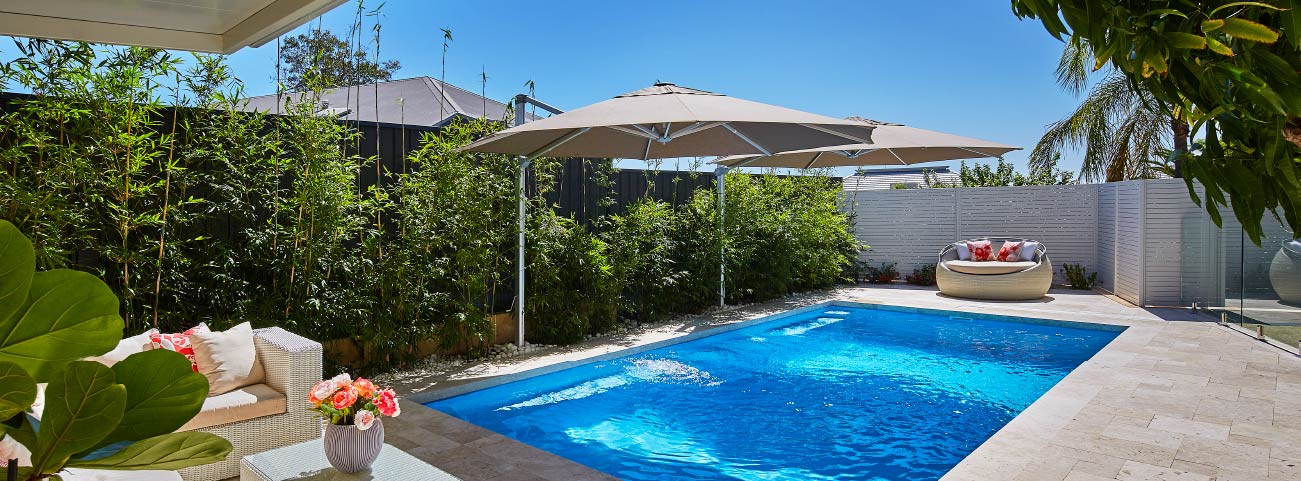
Myth 3: Professional Maintenance is Always the Best Option
Many believe that hiring a professional is the best way to ensure proper pool maintenance. While professional services can provide convenience and expertise, they are not always necessary or cost-effective for every homeowner.
DIY maintenance can be surprisingly manageable. With the right resources and a bit of learning, homeowners can handle regular tasks like skimming, vacuuming, and chemical balancing. Many online tutorials and community forums offer valuable advice for DIY pool care.
However, there are situations where professional help is beneficial. Complex issues such as equipment malfunctions or significant water quality problems may require expert intervention. Balancing DIY efforts with occasional professional assistance can help keep maintenance costs in check.
Myth 4: You Can Skip Regular Maintenance Without Consequences
Neglecting regular pool maintenance might seem like a harmless way to save time and money, but this approach can lead to serious consequences. Skipping routine tasks can result in various problems that are both costly and inconvenient to remedy.
Without regular cleaning, debris can accumulate, leading to algae growth and clogged filters. Additionally, improper chemical balance can cause water quality issues, potentially harming swimmers’ health and damaging pool surfaces.
Routine maintenance is essential for preventing major problems and prolonging the life of your pool. While it might be tempting to skip a few tasks, doing so could end up costing more in the long run. Consistent upkeep is a proactive way to manage your pool efficiently.
Myth 5: Green Pools are Just a Cosmetic Issue
A green pool is often dismissed as merely an aesthetic problem, but the reality is more concerning. Green water usually indicates the presence of algae, which can be a sign of deeper issues within your pool’s ecosystem.
Algae growth can clog filters, affect water circulation, and create slippery surfaces, increasing the risk of accidents. Moreover, it can lead to bacterial contamination, posing health risks to swimmers. Addressing a green pool requires more than just surface cleaning; it often involves treating the water with algaecides and adjusting the chemical balance.
Understanding that a green pool is more than a cosmetic issue underscores the importance of regular maintenance. By keeping the water clean and balanced, you can prevent algae growth and ensure a safe and enjoyable swimming environment.
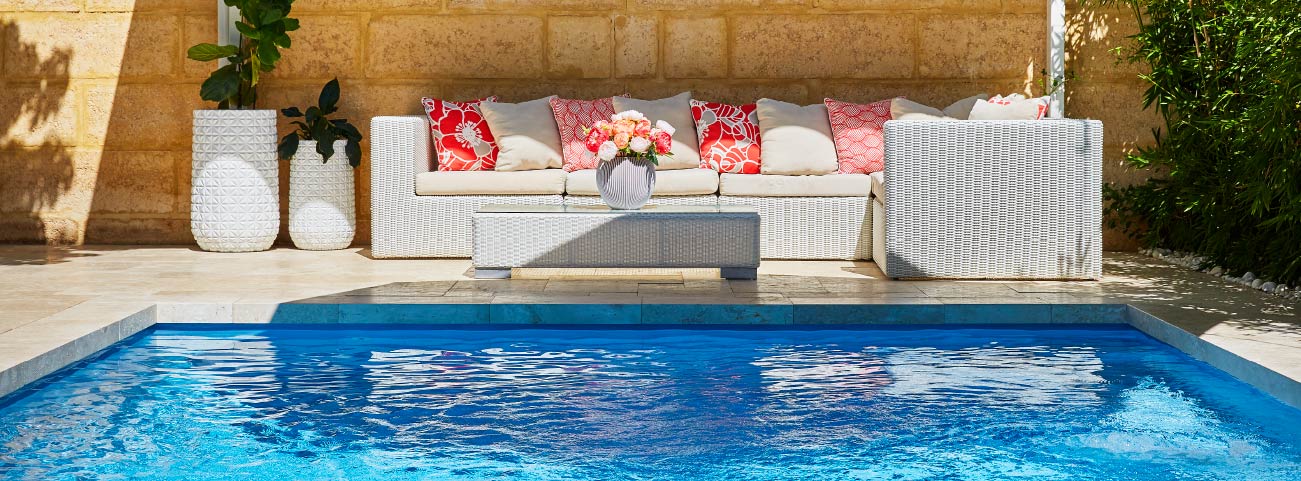
Myth 6: Saltwater Pools are Maintenance-Free
Saltwater pools are marketed as low-maintenance alternatives to traditional chlorine pools, but they aren’t maintenance-free. They offer some advantages but also have their own maintenance needs.
Saltwater pools use a chlorinator to produce chlorine, reducing the need for manual addition. However, the chlorinator needs regular upkeep and occasional cell replacement. Also, salt can be corrosive, requiring more frequent inspections and maintenance of pool equipment and surfaces.
Saltwater pool owners must also regularly monitor and adjust water chemistry, just like traditional pools. Understanding these nuances helps set realistic expectations for saltwater pool maintenance.
Myth 7: Upgrading Pool Equipment Always Increases Costs
Upgrading pool equipment might seem like an extra expense, but it can lead to long-term savings. Modern equipment is more energy-efficient and effective, reducing maintenance costs and improving performance.
For example, energy-efficient pumps and heaters can lower utility bills. Automated systems simplify maintenance, cutting down on manual effort. A high-quality pool cover can reduce debris and evaporation, further lowering upkeep.
While the initial investment may be higher, the long-term benefits can outweigh the costs. Consider potential savings and improved efficiency when evaluating upgrades.
Encouraging Informed Pool Maintenance
Maintaining a pool doesn’t have to be overwhelming or costly. By debunking myths, homeowners and pool enthusiasts can better understand the real requirements and costs involved.
Regular, informed maintenance ensures a safe, clean, and enjoyable swimming experience. Whether you handle it yourself or hire a professional, understanding pool maintenance empowers you to make the best decisions for your pool and budget.
In conclusion, don’t let misconceptions deter you from enjoying pool ownership. With the right knowledge and approach, maintaining your pool can be manageable and rewarding. Dive into informed pool maintenance, and keeping your pool in top condition will be within reach.
7 Myths About Pool Maintenance Costs
Owning a swimming pool is often seen as the ultimate luxury. However, it’s also surrounded by misconceptions, especially when it comes to maintenance costs. Many potential pool owners hesitate, fearing high expenses and complicated upkeep. This blog aims to debunk seven common myths about pool maintenance costs, providing homeowners and pool enthusiasts with the clarity they need.
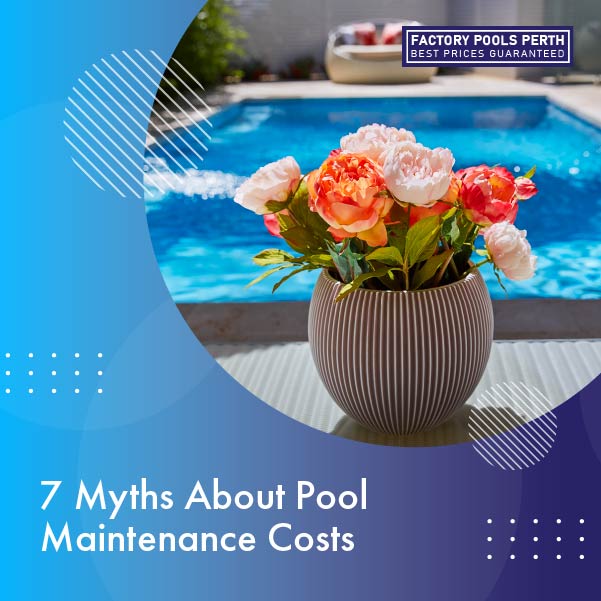
Understanding Real Pool Maintenance Costs
Swimming pools offer endless fun and relaxation, but misinformation can make the idea of maintaining one seem daunting. Understanding the true costs involved is crucial for making informed decisions. Are pools really that expensive to maintain? Do all pools have the same upkeep costs? In this blog, we’ll answer these questions and more, helping you separate fact from fiction.
Myth 1: Pools are Incredibly Expensive to Maintain
It’s a common belief that owning a pool will drain your bank account. However, this isn’t necessarily true. The cost of maintaining a pool can vary significantly based on factors like pool size, type, location, and the frequency of use.
Firstly, regular maintenance tasks such as cleaning, chemical balancing, and equipment checks don’t require a fortune. Many homeowners find that with a few hours per week, they can handle most of these tasks themselves. Additionally, the cost of necessary chemicals and tools is relatively low.
Moreover, technological advancements have made pool maintenance more efficient. Automated vacuums and smart pool systems can reduce the manual effort required, potentially saving you both time and money. So, while there are costs involved, they are often not as overwhelming as people assume.
Myth 2: All Pools Have Similar Upkeep Costs
Not all pools are created equal, and neither are their maintenance costs. Different types of pools—such as in-ground, above-ground, and saltwater pools—come with varying maintenance requirements and associated costs.
In-ground pools, for example, typically require more maintenance due to their larger size and the materials used. On the other hand, above-ground pools are generally easier and cheaper to maintain. Saltwater pools, while often perceived as low-maintenance, have their own set of requirements which we’ll explore further.
Climate also plays a significant role. Pools in warmer regions may need more frequent chemical adjustments and cleaning, while pools in cooler areas might have different seasonal maintenance needs. Understanding these variables allows homeowners to better estimate their specific pool maintenance costs.
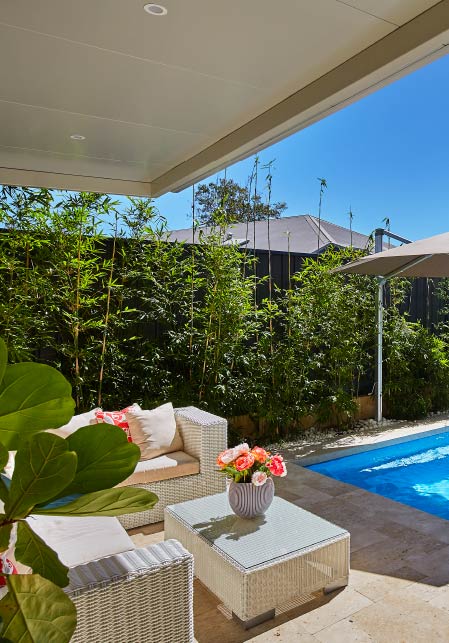
Myth 3: Professional Maintenance is Always the Best Option
Many believe that hiring a professional is the best way to ensure proper pool maintenance. While professional services can provide convenience and expertise, they are not always necessary or cost-effective for every homeowner.
DIY maintenance can be surprisingly manageable. With the right resources and a bit of learning, homeowners can handle regular tasks like skimming, vacuuming, and chemical balancing. Many online tutorials and community forums offer valuable advice for DIY pool care.
However, there are situations where professional help is beneficial. Complex issues such as equipment malfunctions or significant water quality problems may require expert intervention. Balancing DIY efforts with occasional professional assistance can help keep maintenance costs in check.
Myth 4: You Can Skip Regular Maintenance Without Consequences
Neglecting regular pool maintenance might seem like a harmless way to save time and money, but this approach can lead to serious consequences. Skipping routine tasks can result in various problems that are both costly and inconvenient to remedy.
Without regular cleaning, debris can accumulate, leading to algae growth and clogged filters. Additionally, improper chemical balance can cause water quality issues, potentially harming swimmers’ health and damaging pool surfaces.
Routine maintenance is essential for preventing major problems and prolonging the life of your pool. While it might be tempting to skip a few tasks, doing so could end up costing more in the long run. Consistent upkeep is a proactive way to manage your pool efficiently.
Myth 5: Green Pools are Just a Cosmetic Issue
A green pool is often dismissed as merely an aesthetic problem, but the reality is more concerning. Green water usually indicates the presence of algae, which can be a sign of deeper issues within your pool’s ecosystem.
Algae growth can clog filters, affect water circulation, and create slippery surfaces, increasing the risk of accidents. Moreover, it can lead to bacterial contamination, posing health risks to swimmers. Addressing a green pool requires more than just surface cleaning; it often involves treating the water with algaecides and adjusting the chemical balance.
Understanding that a green pool is more than a cosmetic issue underscores the importance of regular maintenance. By keeping the water clean and balanced, you can prevent algae growth and ensure a safe and enjoyable swimming environment.
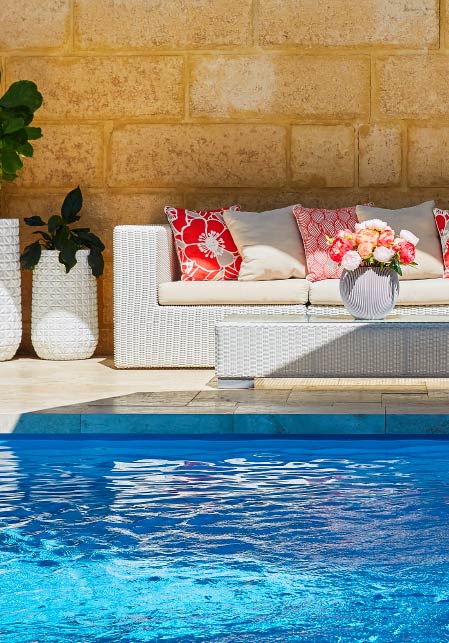
Myth 6: Saltwater Pools are Maintenance-Free
Saltwater pools are marketed as low-maintenance alternatives to traditional chlorine pools, but they aren’t maintenance-free. They offer some advantages but also have their own maintenance needs.
Saltwater pools use a chlorinator to produce chlorine, reducing the need for manual addition. However, the chlorinator needs regular upkeep and occasional cell replacement. Also, salt can be corrosive, requiring more frequent inspections and maintenance of pool equipment and surfaces.
Saltwater pool owners must also regularly monitor and adjust water chemistry, just like traditional pools. Understanding these nuances helps set realistic expectations for saltwater pool maintenance.
Myth 7: Upgrading Pool Equipment Always Increases Costs
Upgrading pool equipment might seem like an extra expense, but it can lead to long-term savings. Modern equipment is more energy-efficient and effective, reducing maintenance costs and improving performance.
For example, energy-efficient pumps and heaters can lower utility bills. Automated systems simplify maintenance, cutting down on manual effort. A high-quality pool cover can reduce debris and evaporation, further lowering upkeep.
While the initial investment may be higher, the long-term benefits can outweigh the costs. Consider potential savings and improved efficiency when evaluating upgrades.
Encouraging Informed Pool Maintenance
Maintaining a pool doesn’t have to be overwhelming or costly. By debunking myths, homeowners and pool enthusiasts can better understand the real requirements and costs involved.
Regular, informed maintenance ensures a safe, clean, and enjoyable swimming experience. Whether you handle it yourself or hire a professional, understanding pool maintenance empowers you to make the best decisions for your pool and budget.
In conclusion, don’t let misconceptions deter you from enjoying pool ownership. With the right knowledge and approach, maintaining your pool can be manageable and rewarding. Dive into informed pool maintenance, and keeping your pool in top condition will be within reach.



